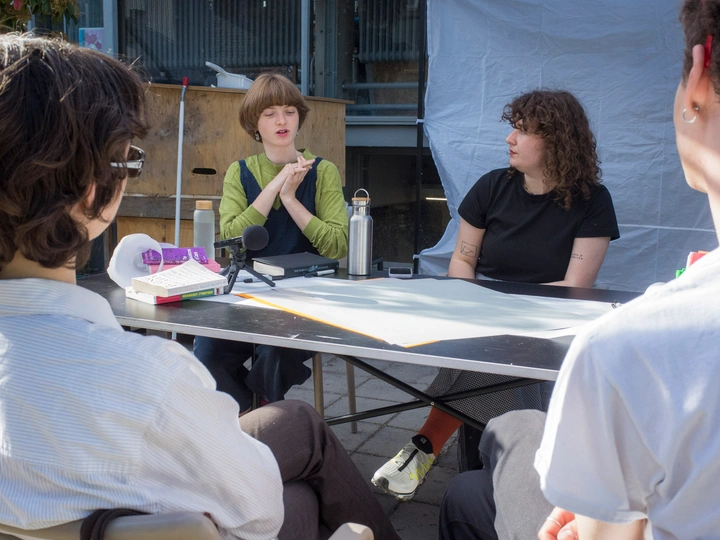Conversation as foundation

Toni Wagner
Morgä Studio is founded by social designer and interior architect Monja Simon, and Toni Wagner an interaction designer and researcher.
They met during their Master studies at the Design Academy Eindhoven, during this intense time they started having conversations about their upbringing within the margins, and the related experiences with this upbringing within the design world.
This honest discourse influenced their approach of having a value-based practice, not narrowing themselves down to one field, but rather opening up through design to a mindset of transformation. Inspired by daily mundane practices of mending, preserving, writing and sharing stories they address the relation between design and classism from a critical, socio-political perspective, and focusing on bringing lived experiences, mindsets and struggles of marginalised bodies to create new narrations and audiences into the academic discourse.
They engage with critical communication formats like collaborative writing processes, radio-making, facilitating talks and inquiring the perceptions of body and sound in space.
Stop building, listen first.
A Conversation is the beginning of every collaborative endeavour, hence our proposal aims to delve into the rhythms of conversation, exploring infrastructures of how we speak, listen, and grant the privilege of being heard. Through this exploration, we seek to analyse foundations for accessible, critical discourse.
We aim to understand the complexities of conversation hierarchies, by questioning who speaks mostly, how much, and ask ourselves why it is sometimes so hard to speak up. Secondly, by recognising that "the walls are listening”(1), we want to challenge oppressive norms that shape our conversational spaces, asking us why the way we talk can make some people feel left out. We want to shift our focus from constructing dialogues to maintaining them, emphasising the ongoing work of fostering inclusive dialogue as talking isn't just about starting conversations; it's about keeping them going.
The Foundation describes the objectives we want to achieve by employing diverse workshop formats to explore different conversational methods. These formats will include formal, informal, and intimate settings, allowing for a comprehensive examination of voicing and listening practices. Through our commitment to challenging dominant norms and exploring diverse dialogue formats, we aim to lay the groundwork for an inclusive, critical discourse that empowers individuals and communities alike.
Engaging with various listening exercises, such as radio-making, collective reading, moderating, facilitating, and spatial transformation, we aim to create inclusive conversational spaces. At the heart of our exploration lies a key question: How does the spatial placement of the body influence its voice, and how can we use this understanding to enrich dialogue? By dismantling this question, we will uncover new insights into the relationship between physical presence and sonic expression in space.
(1) “On Complaint” by Sara Ahmed